What does all of this have to do with theatre?
Between failing political leadership during an unprecedented public health crisis and yet another surge of uprisings in the name of Black lives, I wanted to help theatre artists make sense of the world and catalyze national movements into a moment for their art and professions. As an actor who has worked primarily in the American theatre, I know there’s a huge gap between activist-led movements and their ability to be realized within our arts institutions. There’s often a lot of talk and little substantive action. While this dynamic might be upheld by management (and their donors), it is all too often enabled or abetted by the arts workers most affected, who make up a large chunk of their labor force. Without a careful analysis of what’s going on, arts workers risk internalizing the same destructive ideologies that ultimately undergird the problems we cry out against. Without the integration of class politics and its attendant awakening to our situations as workers within a capitalism that viciously neglects us, the demands we theatre artists make will continue to be diffused into token gestures and surface solutions.
Besides, most theatre, especially the good kind, tends to stake a claim on saying something meaningful about the world, right? Institutions that present theatre have missions that assert their own value by arguing the art they produce helps humans and their social environments. But if the looking glass of class politics are missing from both the work and the institutions, how could they have a shot at living up to their own expectations?
Also: How could this not have everything to do with the theatre? It’s high time we acknowledge that the politics of all artworks, including theatre, are not just the content of the art—the characters and the story, in our case—but the values of the institutions that present them, the behavioral norms of those on stage and especially in the audience, the finances of access and influence, and who’s in the physical building and how they were invited in, not to mention the building itself and the land on which it stands. These are all matters of class.
Further, theatre artists, and artists in general, are workers just like everybody else. So many of the issues we think are unique to our industry—say, healthcare—are clearly national political issues or working-class issues. Class politics and the critique of capitalism allows us to reframe our struggles as collective ones and forge a way toward solidarity both within and outside our industry. Sufficiently developed in our class consciousness, arts workers can join workers across the country and engage in the beautiful struggle of mutual liberation.
Class politics and the critique of capitalism allows us to reframe our struggles as collective ones and forge a way toward solidarity both within and outside our industry.
“Production” is a central focus of capitalism and “labor” is an essential concept of anticapitalism. One proposal of Anticapitalism for Artists asks us to decide which we think is more foundational. In my experience, the vast majority of theatre artists have had a tough go of things in their profession at some point (if not always). They’ve internalized many a “starving artist” or “hustle culture” ideology to assure themselves that soon after their next under- or non-paid gig they’ll move from undiscovered or emerging to that illusive arriving and it’ll all be worth it. But what if they didn’t have to cope? What if they worked in a field with wages that hadn’t plateaued in the mid-seventies? What if they lived in a city with rent control? What if they inhabited a nation that saw healthcare as a human right? What if they had an artistic work culture that understood quality of life to mean shorter rehearsal days, longer rehearsal periods, and two days off just like many modern unions have had for decades? These are labor issues, and labor has never won any protections without engaging in class politics. How long will we suffer for our art? What if it could be better? Because it can.
Now, maybe there’s some actor out there thinking, I’m not a pleb! This is all doom and gloom! I just walked off a set that paid me $10,000 for a day’s work selling hamburgers on camera. That commercial gig allowed me to work my theatre gig without qualms! I worked hard, made my sacrifices. Life is good even if it ain’t always fair—this is show business, after all.
My question for students is always one of whether we’d rather win the race to the bottom of ever-worsening labor conditions or raise our expectations of what a just world looks like. Because when you look at almost any sensible metric, things for workers have been getting worse, not better. We call the state of laboring under capitalism “exploitation.” Even though certain individuals may, at some times, enjoy pleasant work experiences and uncommon success stories, exploitation centers the declining health of the collective. We can observe that between two factors: 1) to what degree high-end success for some depends on exploitation of the low and middle sections, where most arts workers dwell, and 2) what arts workers’ pay looks like compared to administrators and owners. This is why class politics focuses on labor over production: without that frame, such curiosities are clearly—as the record bears out—an afterthought.
While arts and culture institutions are often nonprofits, their administration and boards seem content to borrow from the playbook of the corporations. I know more than a few beloved NYC nonprofit theatres that have what is essentially Bezos-to-Amazon-warehouse level pay disparity between administrators and artists. Or those that defy all obvious logic and give new play development less time and money (this is also, coincidentally, where most diversity finds itself relegated). I know too many mainstage productions where the set costs more than the combined salary of every actor on stage—multiplied by ten. At a certain point we have to ask ourselves: Is this the cost of being an arts worker? And why is it essentially coming out of our paychecks?
Precisely at this juncture is where it’s essential to understand class politics, to see ourselves as workers, and to disentangle ourselves from the pleasure of making art or the self-esteem we draw from an identity based on being a creative person. These things are important, but they will never allow us to improve our working conditions. It is here that, armed with a class politic, we must let go of the rugged individualism ingrained in us by the logic of late-stage capitalism and instead take up the age-old responsibility of working-class solidarity. Instead of theatres opening up bars and restaurants and kowtowing more to an ever-increasing array of corporate donors, we should realize our arts institutions are sites of class struggle. Arts institutions, from the missions they espouse to the working-class people they employ, should be at the frontlines of improving our communities by definition.
Our job, as theatremakers, isn’t just about the creative talents of the artists we center, but all the folks in the building: cleaning staff, maintenance workers, security, and operations. What if we saw things not just from the angle of production but of labor? Of people and the freedom they desire but do not yet possess? What if, instead of invisibilizing these folks, we understood the immensity of labor required to make a play, beyond the creative team? Administration and management, out of a democratic listening, can become sites of community expression. Over the course of this recalibration, we would necessarily find that our art begins to reflect the world more as it is or, at least, how we really see it, instead of reflecting the world through the tastes and desires of elites who ostensibly fund and shape art production under capitalism.
In order to start this shift, we need to study. I’ve learned that when most of us are asked to define capitalism, we cannot. How can we have an opinion of a system and whether it’s serving us if we don’t even know how it works? If people study capitalism and end up loving it, then fine. For the rest of us, we need to gather with the expressed goal of raising our class consciousness. I started Anticapitalism for Artists on a whim, without any prior experience with political education. The “success”—insofar as folks joining socialist organizations like the Democratic Socialists of America, continuing their study through self-organized groups and creating new curricula, and devising new strategies for impacting their art-making industries—has been immense. Soho Rep was influenced by the Anticapitalism course in creating their Project Number One. The Beehive Dramaturgy Studio has a new affiliate program inspired, in part, by this course. A professor in the Ithaca College stage management program now has modules on economics as a result of this work. Who knows what will happen next—we’re just getting started.
Arts institutions, from the missions they espouse to the working-class people they employ, should be at the frontlines of improving our communities by definition.
I’ve learned that all someone needs is the desire to transform the world, the discipline to learn something new, and the company of peers. That said, one of the big ideas I try to drive home is that study without action is incomplete. Ultimately we need to move past mobilizing around single issues of the moment into persistent, sustained, and organized movements, as Pan-African revolutionary organizer Kwame Ture so passionately advised. We need to be in formations that address the “root.” All this begins with class consciousness. Groups like the Workers Arts Project and Hollywood Labor serve as great examples of working from class consciousness into action in the arts. And I cannot deny the influence of likeminded artists in the UK, such as those part of the World Transformed and A Good Night Out Reading Group.
My work has been motivated by two truths which are expressed, respectively, in two quotes: the writer, filmmaker, and activist Toni Cade Bambara has given us the wisdom that “the role of the artist is to make the revolution irresistible,” and the activist/writer Emma Goldman proclaimed something akin to “if I can’t dance it’s not my revolution.” Both of these notions illustrate areas of possibility for artists to engage in the work of shaping new worlds alongside our study of what currently exists, with clear parameters for strategy and impact. Furthermore, the Slovenian theorist and psychoanalyst Slavoj Žižek has said that cinema teaches us how to desire, which points to how art has the potential to help push our hunger for more: for more justice, for more freedom, for higher expectations among working people—if only we articulate the nature of the problem to our greatest ability within our art and lives.

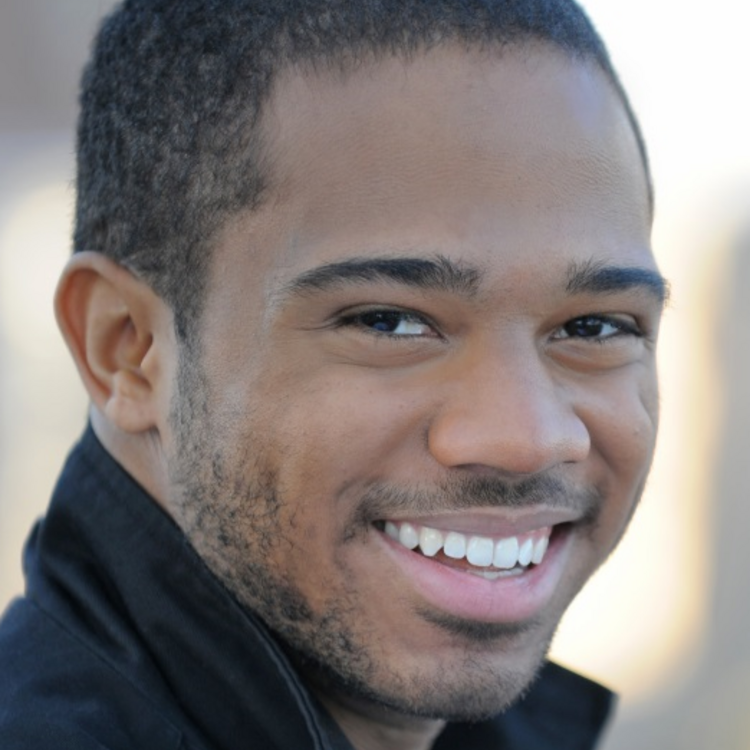
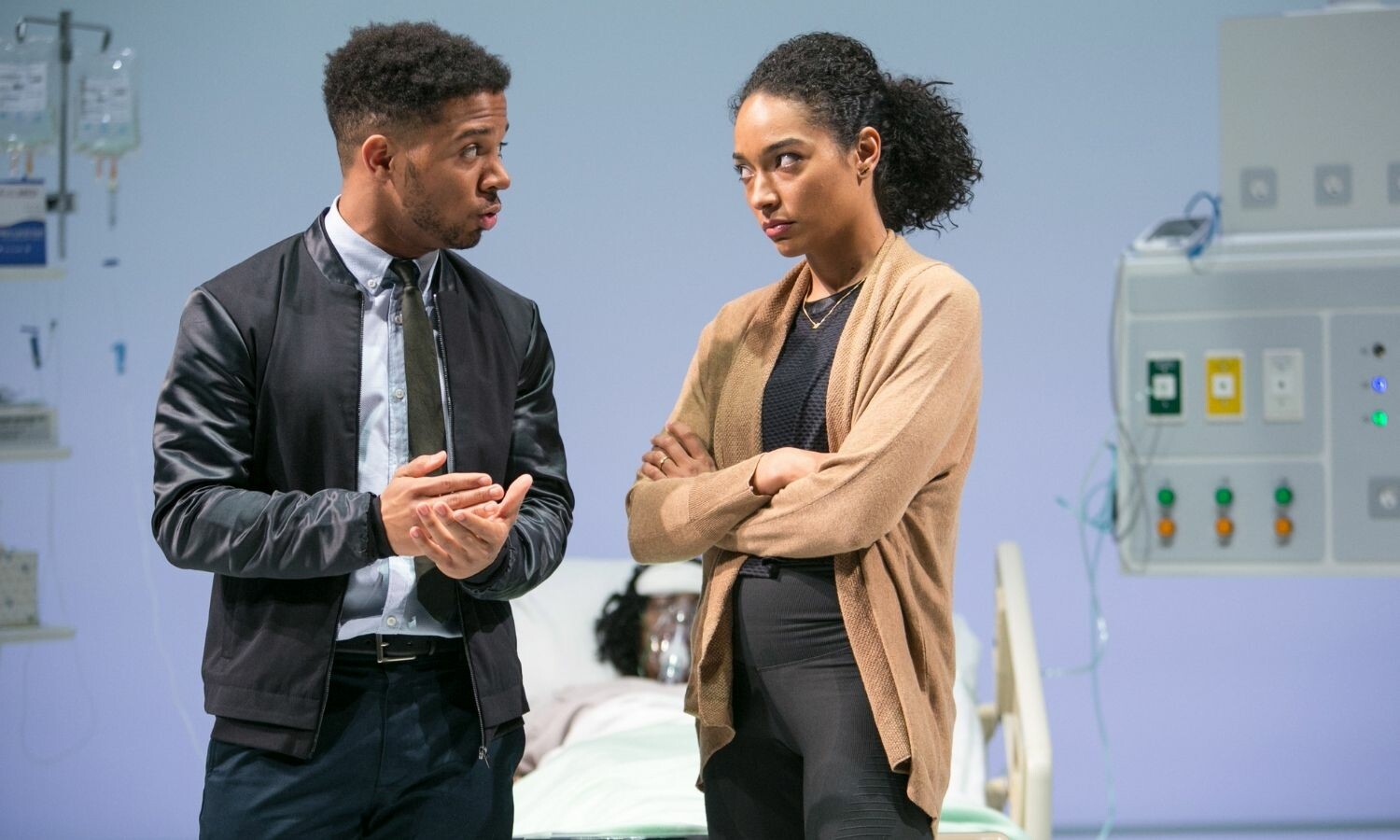
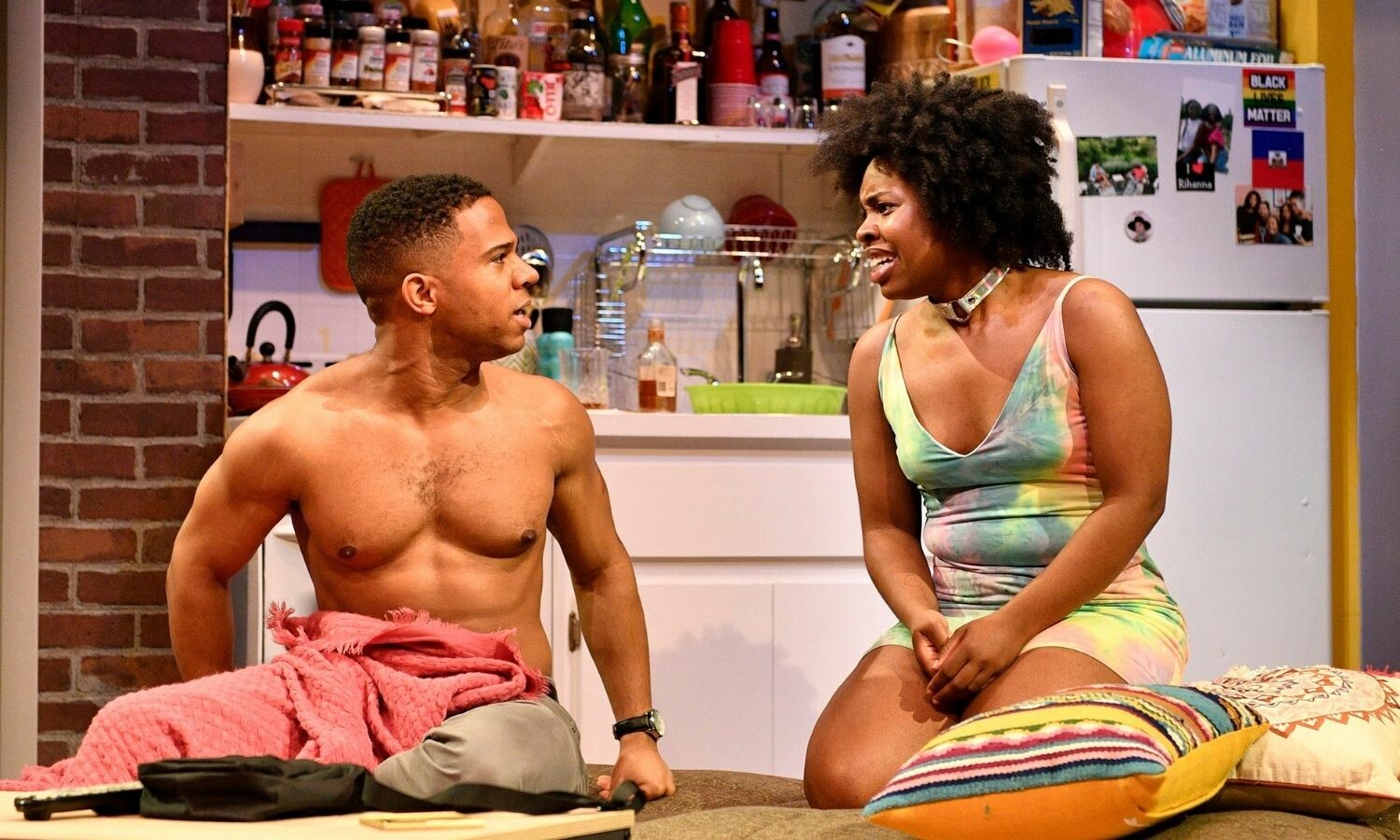
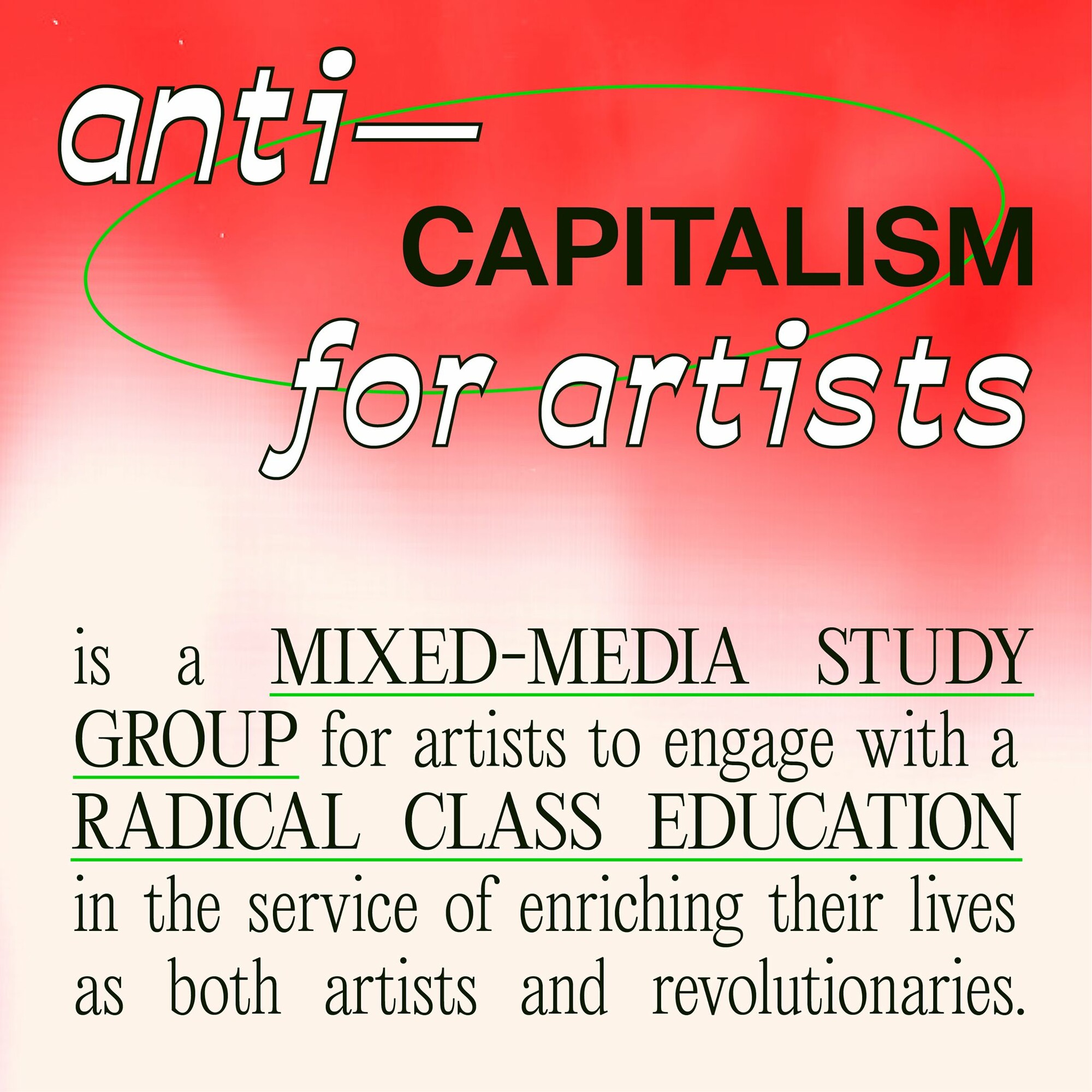
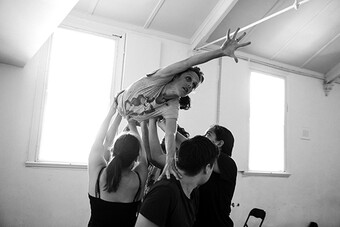

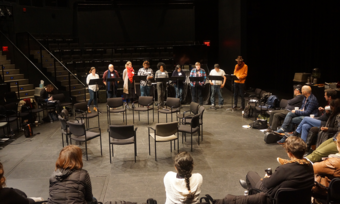


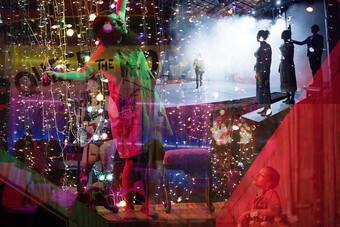

Comments
The article is just the start of the conversation—we want to know what you think about this subject, too! HowlRound is a space for knowledge-sharing, and we welcome spirited, thoughtful, and on-topic dialogue. Find our full comments policy here